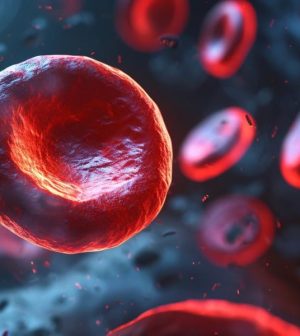- Could Your Grocery Store Meat Be Causing Recurring UTIs?
- Are You Making This Expensive Thermostat Error This Winter?
- Recognizing the Signs of Hypothyroidism
- 10 Strategies to Overcome Insomnia
- Could Artificial Sweeteners Be Aging the Brain Faster?
- Techniques for Soothing Your Nervous System
- Does the Water in Your House Smell Funny? Here’s Why
- Can a Daily Dose of Apple Cider Vinegar Actually Aid Weight Loss?
- 6 Health Beverages That Can Actually Spike Your Blood Sugar
- Treatment Options for Social Anxiety Disorder
Black, White Cancer Patients Now Benefit Equally From Cord Blood Therapy

Blood cancer patients of all races who receive cord blood transplants are now living longer.
The finding, reported by a team led by oncologist Dr. Karen Ballen, of UVA (University of Virginia) Health, shows that a previously identified survival gap for transplant recipients has been eliminated.
“Outcomes for cord blood transplants are improving for patients of all racial and ethnic backgrounds,” Ballen said in a UVA news release.
The new study looked at more than 2,600 patients with blood cancer who received umbilical cord blood transplants between 2007 and 2017.
Black, Asian, Hispanic and white recipients survived equally well, the study found.
Still, cases of “graft-versus-host” disease — a complication of cord blood transplantation that can lead to organ damage and severe infections — was more common in Black children.
Cord blood cells restore the patient’s ability to make blood cells after such cancer treatments as high-dose chemotherapy.
Though cord blood transplants are becoming less common in the United States, researchers said cord blood remains a vital lifeline for many patients. Because it needs not be precisely matched to the recipient, it is especially helpful for patients from racial or ethnic minority groups who often struggle to find a fully matched unrelated donor.
Researchers found that matching race was less important than the total number of cord blood cells transplanted.
“The more, the better,” they said.
They cited several contributors to improved survival rates. Those included improved identification of appropriate patients, newer techniques for matching patients and donors, and better antibiotics and other care.
The findings are published in the October issue of the journal Transplantation and Cellular Therapy.
More information`
The Leukemia & Lymphoma Society has more about cord blood stem cell transplantation.
SOURCE: UVA Health, news release, Sept. 30, 2024
Source: HealthDay
Copyright © 2026 HealthDay. All rights reserved.










